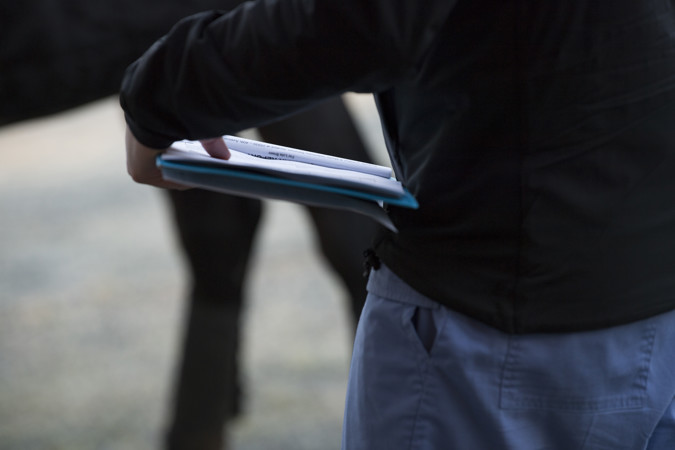LATEST NEWS
Horse passports
31 Jan 2025
What is a horse passport and who needs one?
Horse passports are official documents that are used to identify horses, ponies, donkeys and related species (hybrids, zebra and other zoo animals). Each has a unique passport number and contains information regarding the type, height, age, appearance and the microchip number of the animal to which it is issued. It is a legal requirement for all equids (with exemption of some semi-wild ponies such as Dartmoor, Exmoor, the New Forest or Wicken Fen) over the age of 12 months to have a microchip and a passport https://www.legislation.gov.uk/.../pdfs/uksi_20180761_en.pdf
Where should passports be kept?
Horse passports should accompany the relevant animal at all times. This includes during transportation, or when kept at a different temporary or permanent location such as when sold or loaned, or moved for livery, training, competition, stud or veterinary treatment reasons. Passports should be stored in a clean, dry, safe and secure place. A plastic impermeable wallet in a locked cabin is ideal.
Why is a horse passport necessary?
Horse passports are perhaps most commonly thought of as a useful place to record and track vaccines. However, they also provide a way for owners to make a choice regarding whether their horse may enter the food chain in the future and play an essential role in safeguarding human as well as animal health. Many commonly used medications that are beneficial to horses (e.g. phenylbutazone or ‘bute’) would be dangerous if ingested by humans. Passports ensure that drugs that are potentially harmful to human health do to not enter the food chain. All but the oldest of horse passports have a section which, when signed, prohibits the horse from entering the food chain and means that the horse can be freely treated with beneficial medications throughout their life. If this section is not signed, then a horse should either not receive any such ‘restricted medications’ at any time or alternatively have them documented in full within the passport each time one is prescribed.
What should I do….
…if my horse doesn’t have a passport?
Don’t panic! Please just get in touch to book an appointment with a vet to complete a new or replacement application for you. We can either bring the paper work https://www.horsepassportagency.co.uk/ or you are welcome to supply a form from a Passport Issuing Organisation of your choosing: https://www.gov.uk/.../horse-passport-issuing-organisations Horse passports can be completed on a £20 zone visit and cost approximately £50 for the vets to complete. There is also an additional charge of approximately £30 to be made to the horse passport agency.If you are using another passport issuing organisation you should check their fees directly with them . You should check if using another passport issuing organisation.
…to declare that my horse IS NOT intended for human consumption?
You will need to check that the relevant area of your passport is signed. This is often Section IX, Part II but can vary and may be in a different language or be absent in very old passports. We are here to help so please do not hesitate to get in touch if you need further guidance.
…every time a vet examines or treats my horse?
Please try to ensure that the passport is readily available every time a vet examines or treats your horse. For vaccination appointments where you are affiliated with a regulatory body (e.g. FEI, BHA), please make sure that the date that the vaccination is performed is compliant with local rules and make the attending vet aware of any requirements (e.g. upload vaccination status to Weatherby’s)
